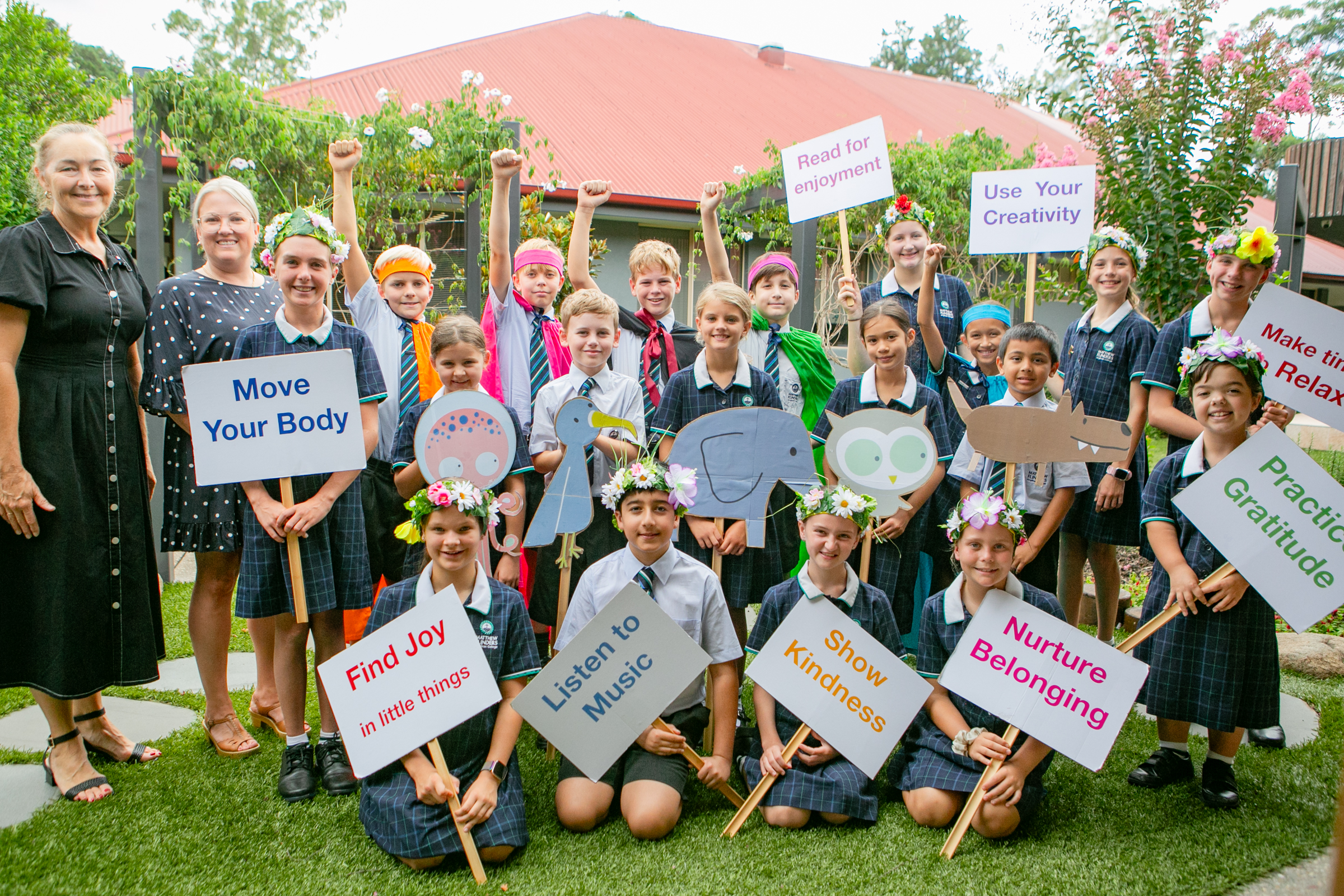Article by Kersti Mowat, Head of Junior Primary, Matthew Flinders Anglican College
Learning how to manage our feelings in healthy ways is a foundational skill that contributes to our wellbeing and success in life. Known as ‘emotional regulation’, this skill relies on managing and responding to emotional experiences in a balanced and constructive way.
To be emotionally regulated, a person is able to recognise, understand and modulate one's emotions, rather than being overwhelmed by them. This skill is not innate; it must be learned and cultivated, and this begins in childhood.
At Flinders, the Grow Your Mind Program is part of our Primary School's commitment to wellbeing. It is just one of the ways we encourage our students to engage in explicit support and strategies to develop appropriate self regulation.
Strategies to Support Emotional Regulation
Emotional regulation encompasses a range of strategies individuals use to influence their own emotional experiences. This can include:
- Awareness: Recognising and understanding one's emotions.
- Acceptance: Allowing emotions to be experienced without suppression.
- Modulation: Adjusting the intensity and duration of emotions.
- Expression: Communicating emotions appropriately.
The Importance of Emotional Regulation
The benefits of building healthy emotional regulation is vast and has a ripple effect, positively impacting the people around us and the way we approach opportunities in life.
- Mental Health: Effective emotional regulation is crucial for mental health. It reduces the risk of anxiety, depression and other emotional disorders by preventing the buildup of negative emotions.
- Relationships: Emotional regulation fosters better interpersonal relationships. It helps individuals communicate more effectively, manage conflicts and empathise with others, leading to healthier, more fulfilling connections.
- Resilience: Individuals with strong emotional regulation skills are better equipped to handle stress and adversity. They can maintain a sense of balance and perspective, which is vital for resilience.
- Academic and Professional Success: Emotional regulation contributes to focus, motivation and the ability to cope with setbacks. These attributes are essential for success in school and the workplace.
Supporting Children in Developing Emotional Regulation
Parents and schools play a pivotal role in helping children develop emotional regulation skills.
Drawing on the insights of Dan Siegel, author of "The Whole-Brain Child" and Becky Kennedy, author of "Good Inside", here are some strategies for parents and caregivers:
- Modelling Behavior: Children learn by observing their parents and role models. Demonstrating calm and constructive responses to emotions sets a powerful example. Parents can narrate their own emotional experiences and coping strategies, showing that it's normal to feel and express emotions.
- Creating a Safe Environment: A secure, supportive environment encourages children to explore and express their emotions. Consistent routines, clear boundaries and a warm, accepting atmosphere help children feel safe to navigate their emotional worlds.
- Naming Emotions: Teaching children to identify and label their emotions is a key step. Using language to describe feelings helps children understand their experiences and communicate them effectively. Phrases like "I see you're feeling frustrated because your toy isn't working" help children to validate their emotions and provide a vocabulary for future use.
- Mindfulness and Breathing Techniques: Introducing simple mindfulness practices and breathing exercises can help children calm their minds and bodies. Techniques like belly breathing or five-finger breathing can be taught through playful, engaging activities.
- Connecting Before Correcting: Dan Siegel emphasises the importance of connecting with a child emotionally before attempting to correct their behavior. Validating their feelings and showing empathy creates a bond of trust, making them more receptive to guidance.
- Problem-Solving Skills: Encouraging children to think through solutions to emotional challenges empowers them. Discussing potential responses to upsetting situations helps build their confidence and problem-solving abilities.
- Consistent Routines and Predictability: Predictable routines provide a sense of stability, reducing anxiety and helping children feel more in control. Regular sleep, meals and playtime schedules create a structured environment that supports emotional regulation.
- Storytelling and Role-Playing: Using stories and role-playing scenarios can help children practise emotional regulation in a safe, imaginative context. These activities can teach empathy, perspective-taking and appropriate emotional responses.
- Positive Reinforcement: Acknowledging and praising children when they manage their emotions well reinforces these behaviours. Positive reinforcement encourages the repetition of desirable emotional regulation strategies.
Developing emotional regulation is a journey that begins in childhood and continues throughout life. By fostering these skills early, parents can help equip their children with the tools they need to navigate the complexities of their emotional landscapes, ultimately contributing to their overall happiness and success.
As Dan Siegel and Becky Kennedy's work highlights, the combination of empathy, understanding and practical strategies can make a profound difference in a child's emotional development and is the philosophy we use at Flinders to support students with their self-regulation development.
References:
Siegel, D. J., & Bryson, T. P. (2019). The Whole-Brain Child: 12 revolutionary strategies to nurture your child's developing mind.
Raising Children: The Australian Parenting Website. https://raisingchildren.net.au/toddlers/behaviour/understanding-behaviour/self-regulation
Kennedy, Becky (2022). Good Inside: A Guide to Becoming the Parent You Want to Be

